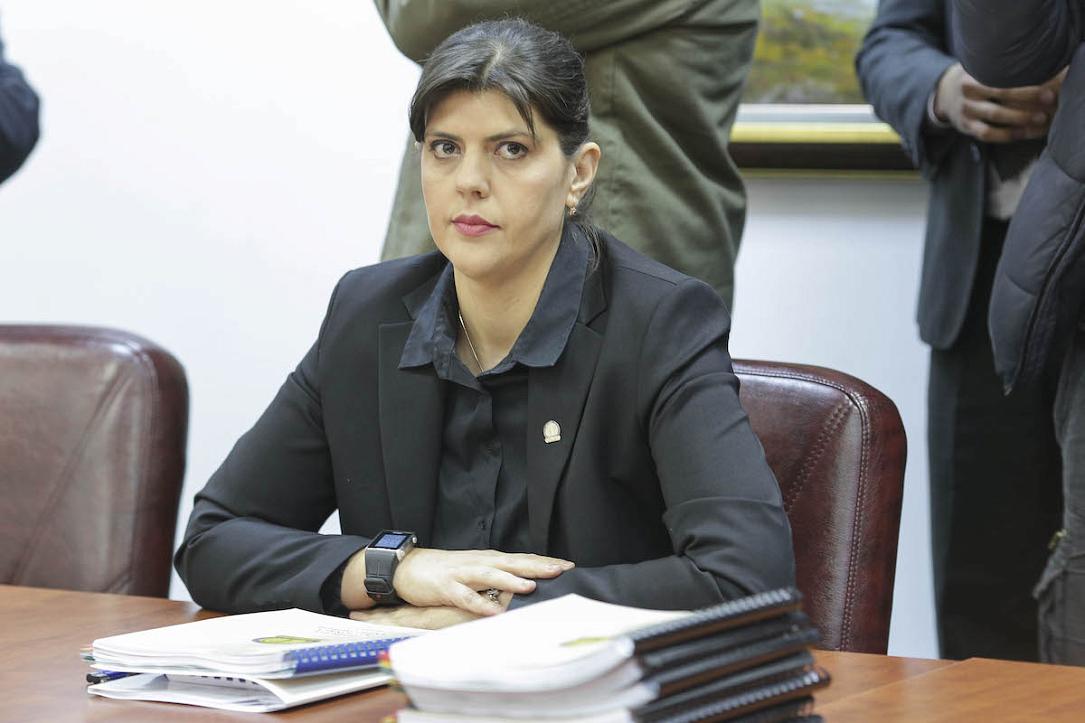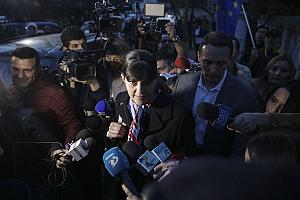Families of two murdered journalists support Romanian for EU Prosecutor job but negotiations get stuck

The families of Maltese journalist Daphne Caruana Galizia and Slovakian journalist Jan Kuciak, both murdered for uncovering major acts of corruption, sent a letter to the EU Council in which they called on the Council to choose Romania’s former anticorruption head Laura Codruta Kovesi for the EU Chief Prosecutor job. Romanian MEP Cristian Preda published the letter on his Facebook page.
The letter came as the negotiations between the EU Council, which supports the French candidate for the job, and the European Parliament, which backs Kovesi, got stuck. The third round of negotiations took place on Thursday, April 4, but without any progress.
In the letter addressed to the EU Council, the families of the two journalists urged the Council to “choose the bravest and most distinguished candidate for the job, a woman made from the same mould as Daphne and Ján: Laura Codruta Kovesi.” They believe the Romanian candidate “is the most qualified candidate and has shown herself willing to bring charges forward when all other institutions within a member state have failed to act, a test which no other candidate has undergone, let alone passed. The EU can no longer assume that member states will guarantee the rule of law and fight corruption of their own accord. Daphne and Jan cried to the heavens for the criminals they investigated to be prosecuted.”
“Ms. Kovesi knows what it takes to prevent more murders of journalists who investigate corruption, money laundering and serious tax fraud. We know that candidatures become chips in a game of political bargaining between member states, but money laundering and the corruption of national authorities are a serious matter of cross-border security that cannot become subject to political compromise. Romania opposes the candidature of Ms. Kovesi and is lobbying for another candidate. Choosing a candidate other than Ms. Kovesi would signal to European citizens that the EU prioritises a false sense of harmony over the protection of their fundamental rights. To choose Ms. Kovesi would say that there is no room for compromise in the deadly fight against corruption,” the same letter reads.
The two journalists’ families end the letter by saying that Laura Codruta Kovesi has their support and that they hope she can count on the Council’s support too.
Meanwhile, the EU Council reiterated its support for the French candidate for the position of EU Chief Prosecutor after the third round of negotiations ended without any progress.
In a press release issued on Thursday, the Council’s negotiating team expressed their regret “that no further progress could be made and that it was not possible to exchange views with the Parliament negotiators on a vision of the institutions for the future European Public Prosecutors' Office (EPPO) and for the first EU Chief Prosecutor.”
“The Council believes the EPPO needs an experienced and independent professional who can set up the office from the outset. The job of the first EU Chief Prosecutor over the 7 years of its mandate will in particular consist in building the administrative and operational structure of the office and establishing good working relations with national judiciary authorities,” the press release also reads.
The EU Council also said that its negotiators expressed their openness for a further meeting next week at a date to be defined. In case the negotiations are not concluded by then, “it is likely they will have to resume once the new Parliament is in place.”
Meanwhile, the European Parliament issued another statement in support of Laura Codruta Kovesi.
“After the third negotiation meeting with the Council delegation, we deeply regret the current deadlock situation, which prevents the two institutions from appointing the European Chief Prosecutor”, said Claude Moraes (S&D, UK), Chair of the Civil Liberties Committee. “The European Chief Prosecutor will play a key role in the implementation of the EPPO, an office that will be instrumental in combatting crimes against EU budget”, he concluded.
Civil Liberties Committee Vice Chair Judith Sargentini (Greens/EFA, NL) said: “The obstruction Ms Kövesi is currently facing from the Romanian authorities highlights her courage and her independence, which both are crucial requirements for the efficient functioning of the EPPO. The harassment of the Romanian government has resulted in completely discrediting the Council’s candidate as well.”
“Unlike the Council, the Parliament has held hearings of all three shortlisted candidates. Ms Kövesi is by far the strongest and most promising candidate for the post. We cannot accept the fact that the Council cedes to the pressure of the Romanian government to support a much weaker candidate. Since the EPPO regulation has been watered down during negotiations, it is crucial for the Parliament to select a candidate who would make the institution strong and credible,” Ingeborg Gräßle (EPP, DE), head of the Parliament’s Budgetary Control Committee, told after the third round of negotiations on Thursday. “She is a woman, and the Parliament has just recently called on the Council to respect the principle of gender balance. Moreover, Romania currently does not hold a single EU key post,” she added.
Kovesi’s appointment as Chief EU Prosecutor has been strongly opposed by the Romanian government, and the fact that she has been recently indicted for acts of corruption in Romania may have affected her candidacy as well.
newsroom@romania-insider.com
(Photo source: Inquam Photos / Octav Ganea)
















